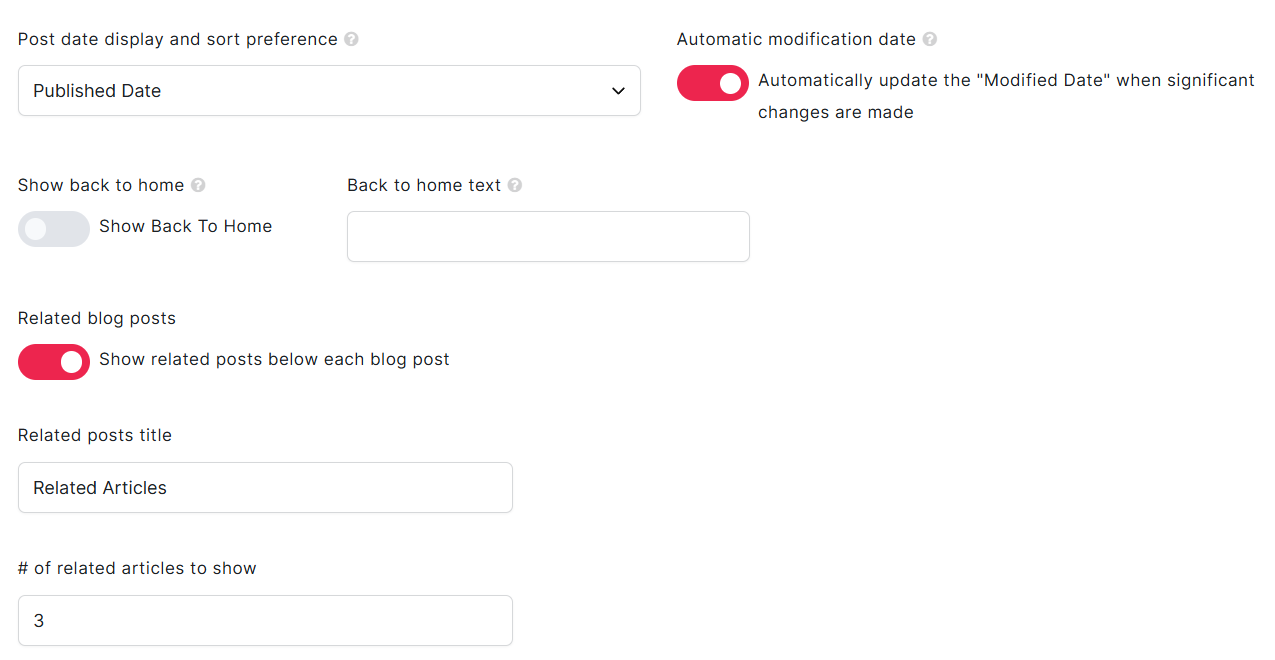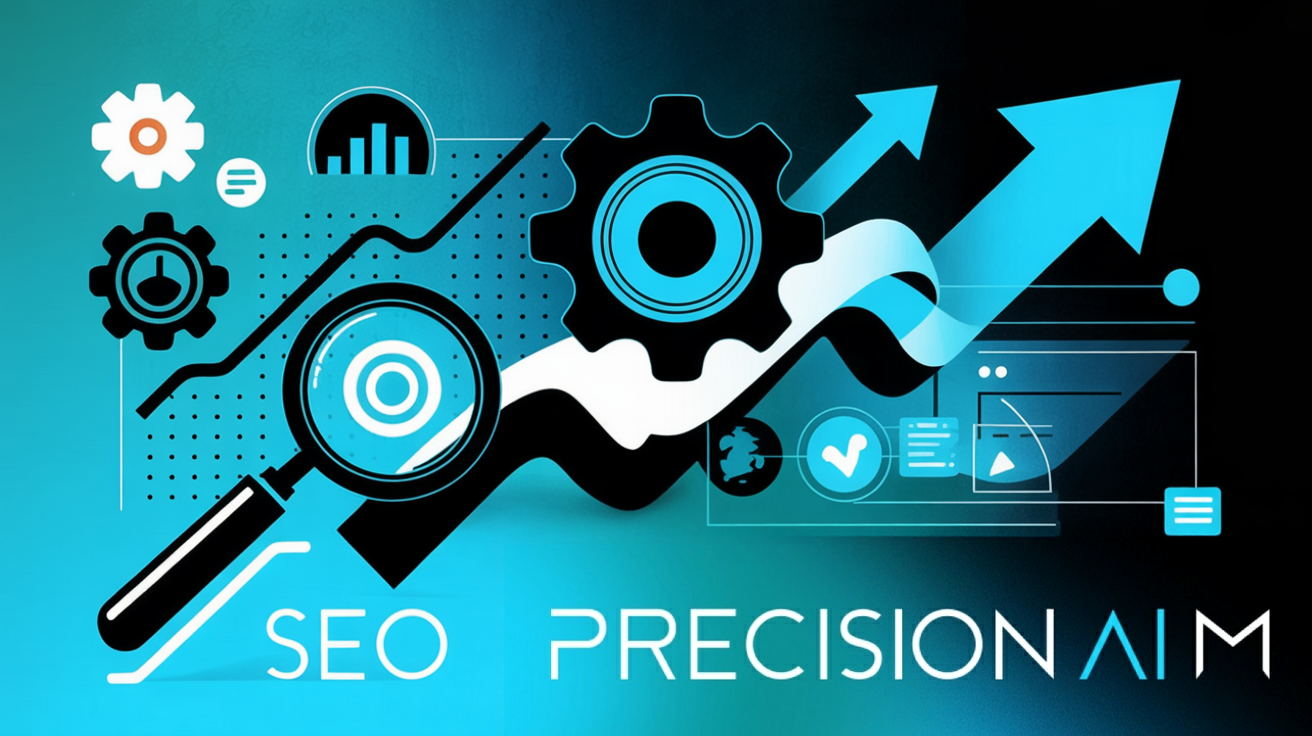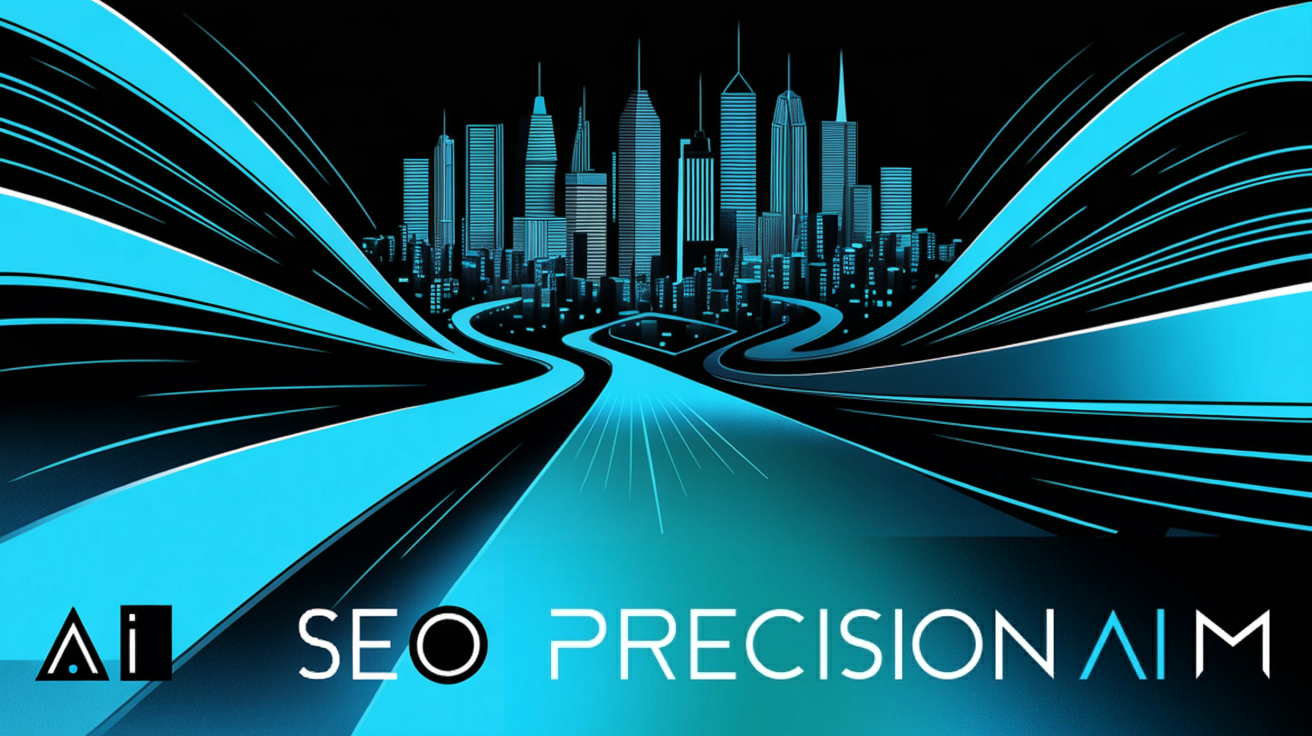Getting noticed online as a small business isn’t easy. With limited budgets and time, SEO can feel overwhelming or even out of reach.
I’ve seen firsthand how the right SEO partner can turn things around—driving more local customers, boosting calls, and building steady growth that lasts beyond paid ads. But choosing wisely is critical, since quick fixes and poor contracts can do more harm than good.
In this article, I’ll break down what actually makes an SEO company a smart fit for small businesses. You’ll get clear criteria, practical examples, and a side-by-side look at top providers—from hands-on agencies to AI-powered platforms and hybrid solutions.
By the end, you’ll know exactly what to look for, what to avoid, and which companies deliver real results for businesses like yours. No jargon—just actionable insights and honest comparisons to help you make the best choice.
What defines the best SEO companies for small business?
Why SEO matters for small businesses today
If you’re running a small business, search engine optimisation isn’t just a buzzword—it’s a practical way to attract a steady stream of new customers. Check the stats: 46% of Google searches have local intent, and 88% of those turn into a visit or phone call within a day. That’s real, tangible action.
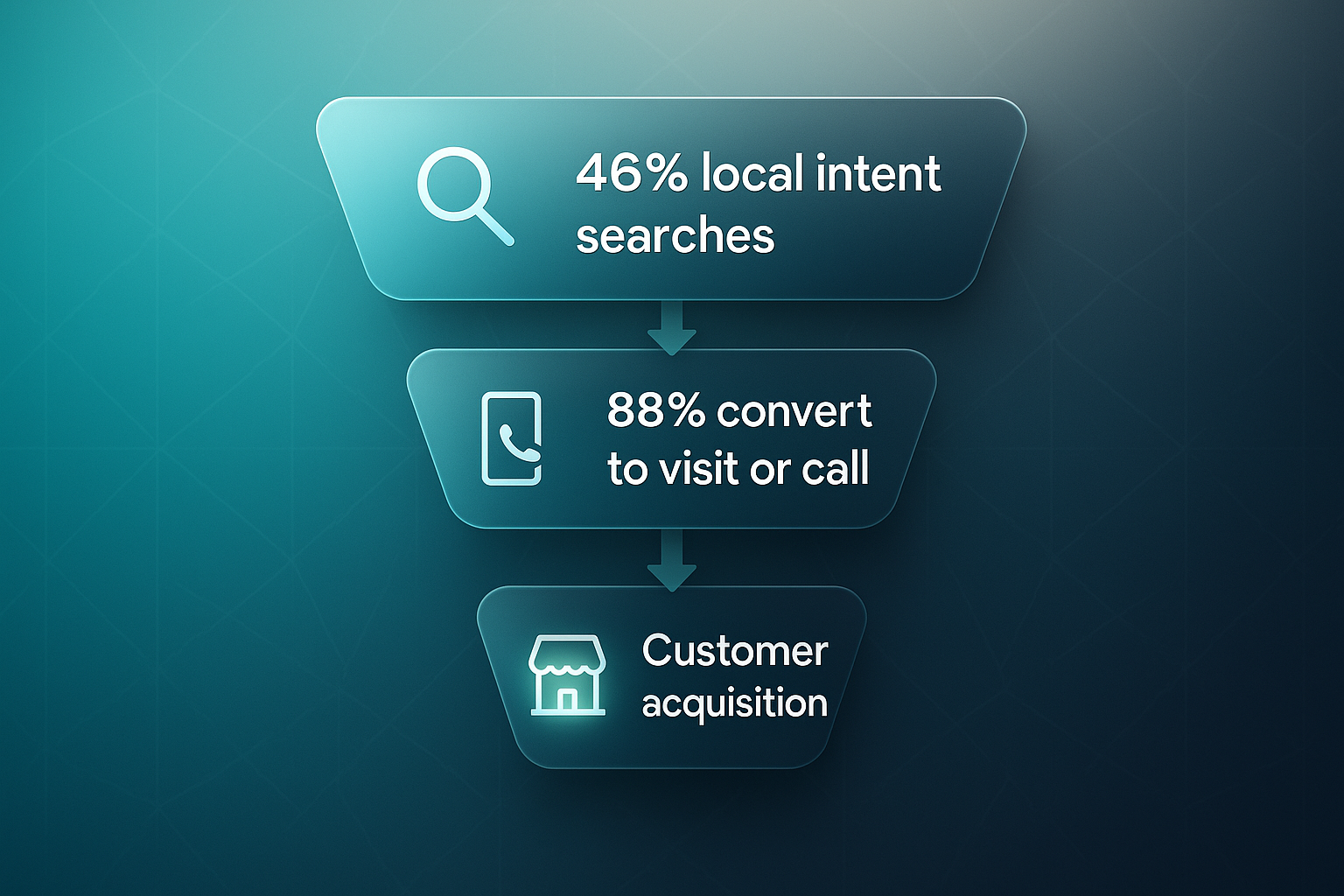
Take a bakery in Bristol as an example. By claiming and optimising their Google Business Profile and encouraging positive reviews, they start appearing in those crucial “near me” searches. That makes a real difference to the number of people walking through the door or ordering cakes for delivery.
Within the first 30 days of implementing our GMB optimization strategy, the restaurant saw a 68% increase in website traffic... Phone calls generated from the GMB listing increased by 42%, and requests for driving directions, a strong indicator of intent to visit, went up by 55%.
The beauty of SEO, especially compared to paid ads, is what happens after the campaign ends. With ads, leads dry up when your payments stop. But effective SEO keeps building, month after month, becoming a digital asset that continually brings in business. That’s how smaller businesses can compete locally, and sometimes even punch above their weight, whilst keeping costs under control.
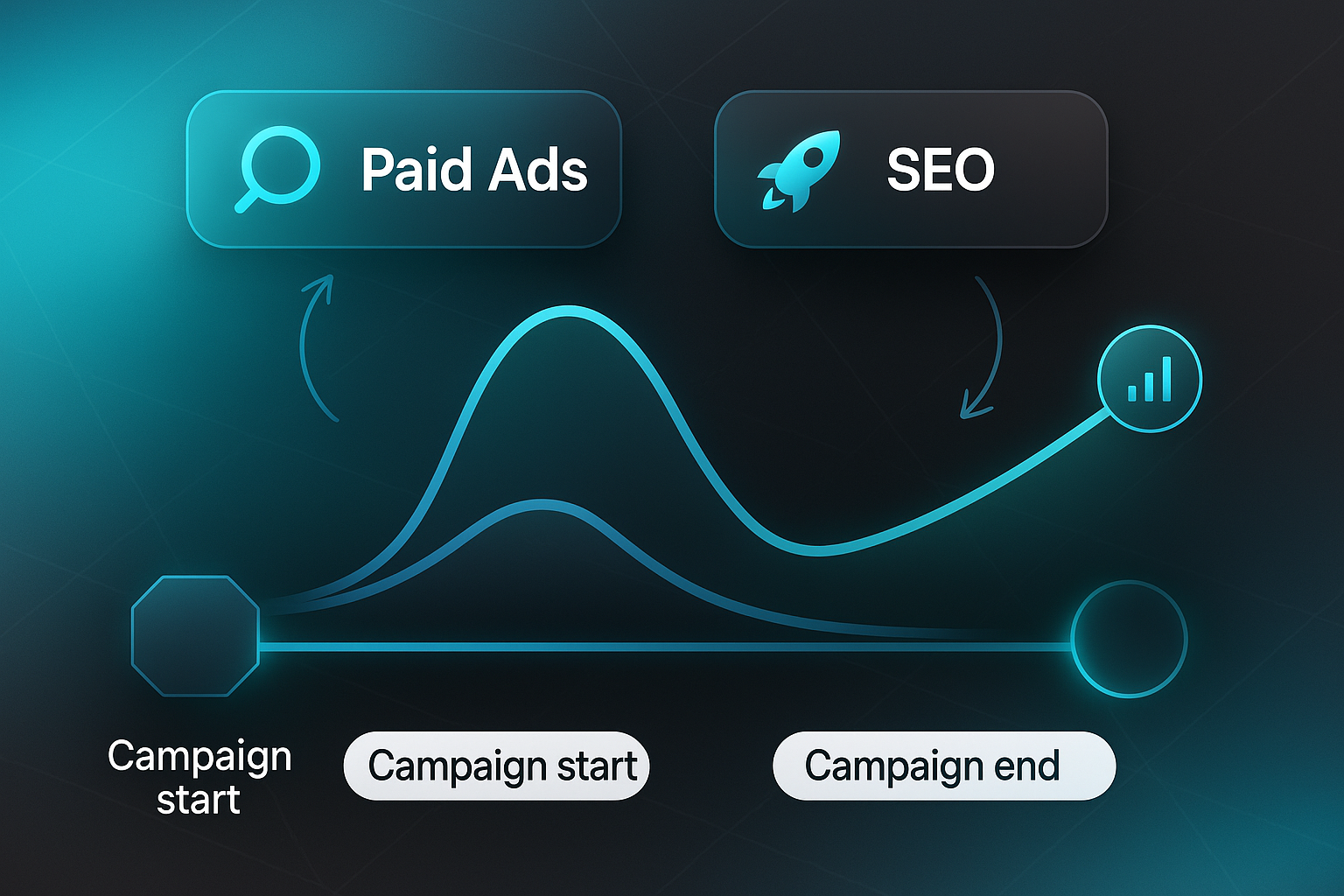
With local SEO, you’re targeting nearby customers—making sure your business details are spot-on wherever people look for you. National SEO widens the reach, though it does take more resource, so it suits those ready to expand beyond their immediate area.
Common challenges for small businesses
- Budget limits
Small businesses need their marketing spend to have clear ROI. - Time constraints
Owners wear many hats, so SEO mustn’t consume all their time. - Knowledge gaps
Technical SEO jargon can easily overwhelm those without experience.
Temptation of “quick fixes”
It’s easy to be tempted by offers for fast results—things like hundreds of dodgy backlinks or stuffing web pages with keywords. However, these shortcuts risk Google penalties, plummeting your rankings and putting your reputation in jeopardy, sometimes overnight.
A sudden drop in organic traffic is one of the first signs of a penalty. This can lead to a significant loss of leads and revenue, making the initial savings from cheap links a costly mistake in the long run.
Key risks when choosing a provider
- Poor contracts
Some agencies tie you into long, inflexible agreements with no escape route. - Loss of asset ownership
When a provider controls your website or profiles, you might lose access if you part ways. - Lack of actionable analytics
Without proper reporting, it’s hard to know if your investment’s making an impact.
The bottom line? Choose a partner who’s both transparent and knowledgeable. The best SEO companies guide, educate, and help you lay the foundation for long-term, compounding growth—never promising magic, always showing their cards. If the pitch sounds too good to be true, walk away.
What to look for in a small business SEO company: Key criteria
Essential services and features
Selecting an SEO company is about more than catchy pitches—it’s about the fundamentals that fuel real growth. And what should you genuinely expect?
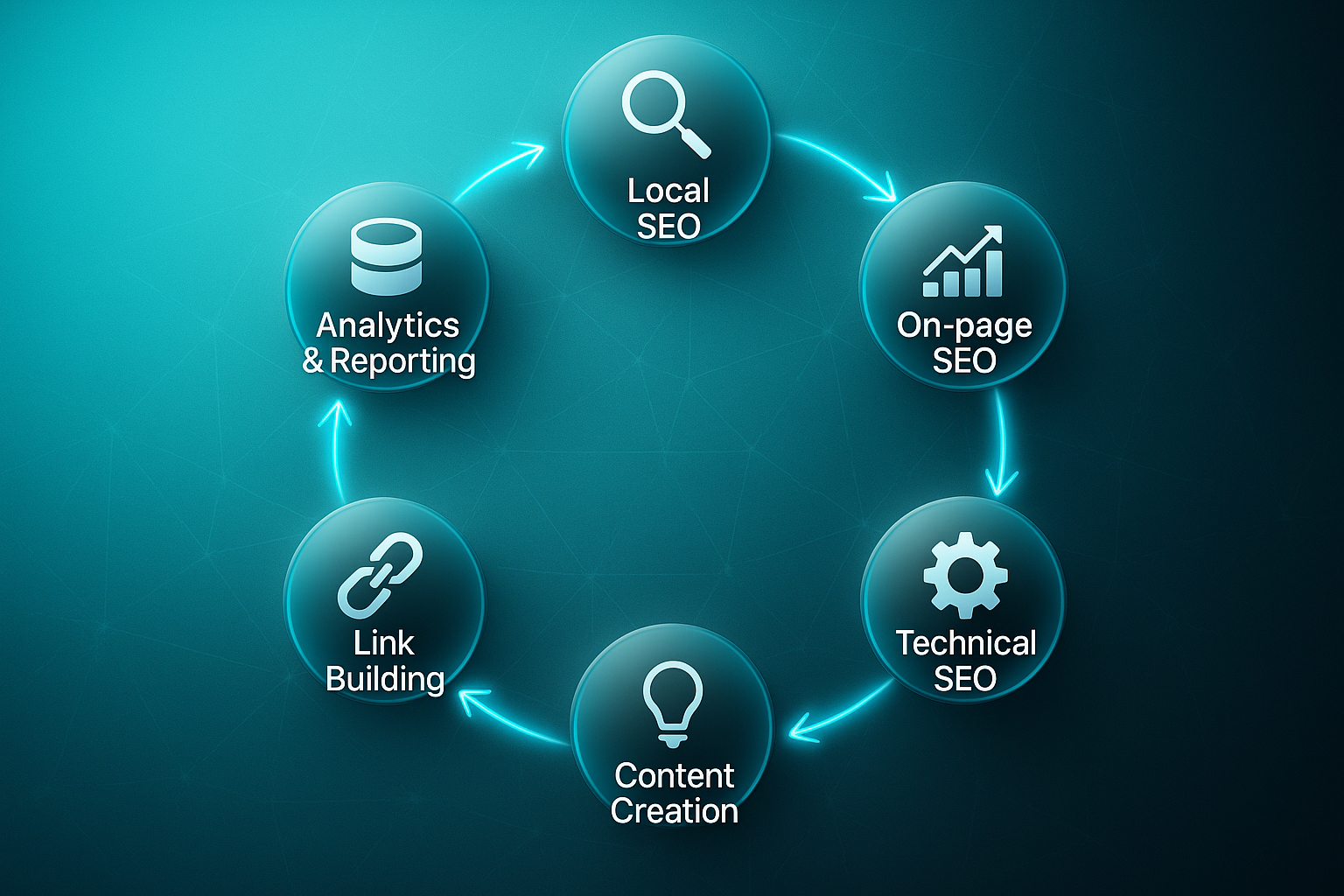
Let’s start with Local SEO. If your focus is the nearby community, this is absolutely pivotal. A polished Google Business Profile, accurate hours, and up-to-date contacts make it easy for locals to reach you. The best providers also build listings on trusted directories, encourage honest reviews, and get you noticed in “near me” searches.
This translates directly into more phone calls, foot traffic, and local engagement.
On-page SEO works page by page. You need relevant keywords, well-structured headings, and compelling meta descriptions. The big difference? Providers who ensure your content actually answers what people search for. That’s what brings in organic visitors and potential leads.
Technical SEO is quietly instrumental. Think faster loading speeds, seamless mobile experience, repaired broken links, and solid site security with HTTPS. All these details help you climb search rankings and ensure visitors don’t leave in frustration.
Next up: Content creation and optimisation. Good SEO partners craft blog posts, guides and service pages based on topics your audience really cares about. For a local builder, that could mean a guide on “Top renovation tips in Bristol.”
This isn’t just filler—high-quality content builds authority and draws in your target customers.
A crucial aspect is link building. When reputable websites link to yours, Google sees you as more trustworthy. The right SEO company earns these links through partnerships, guest blogging, or directory listings. That gives you the edge locally and signals your authority.
Don’t forget analytics and reporting. You should get clear, honest insights using Google Analytics to show exactly how traffic, keyword rankings, and leads are improving. No guesswork—just real transparency.
Traditional agency, AI/software, and hybrid models
How these services come together matters. Some opt for a traditional agency—real experts customising strategies and offering hands-on guidance. Sure, it’s pricier, but the approach is tailored.
Others prefer AI-driven platforms or SEO software that automate audits and updates. If your budget’s tight and you like DIY control, this can make sense.
Meanwhile, there are hybrid solutions where automation meets expert intervention. You save on cost and time but still have humans fine-tuning things when needed.
So, what’s best for your business? The real marker is clarity and honest advice—providers who lay out options, explain pros and cons, and help you match services to your goals.
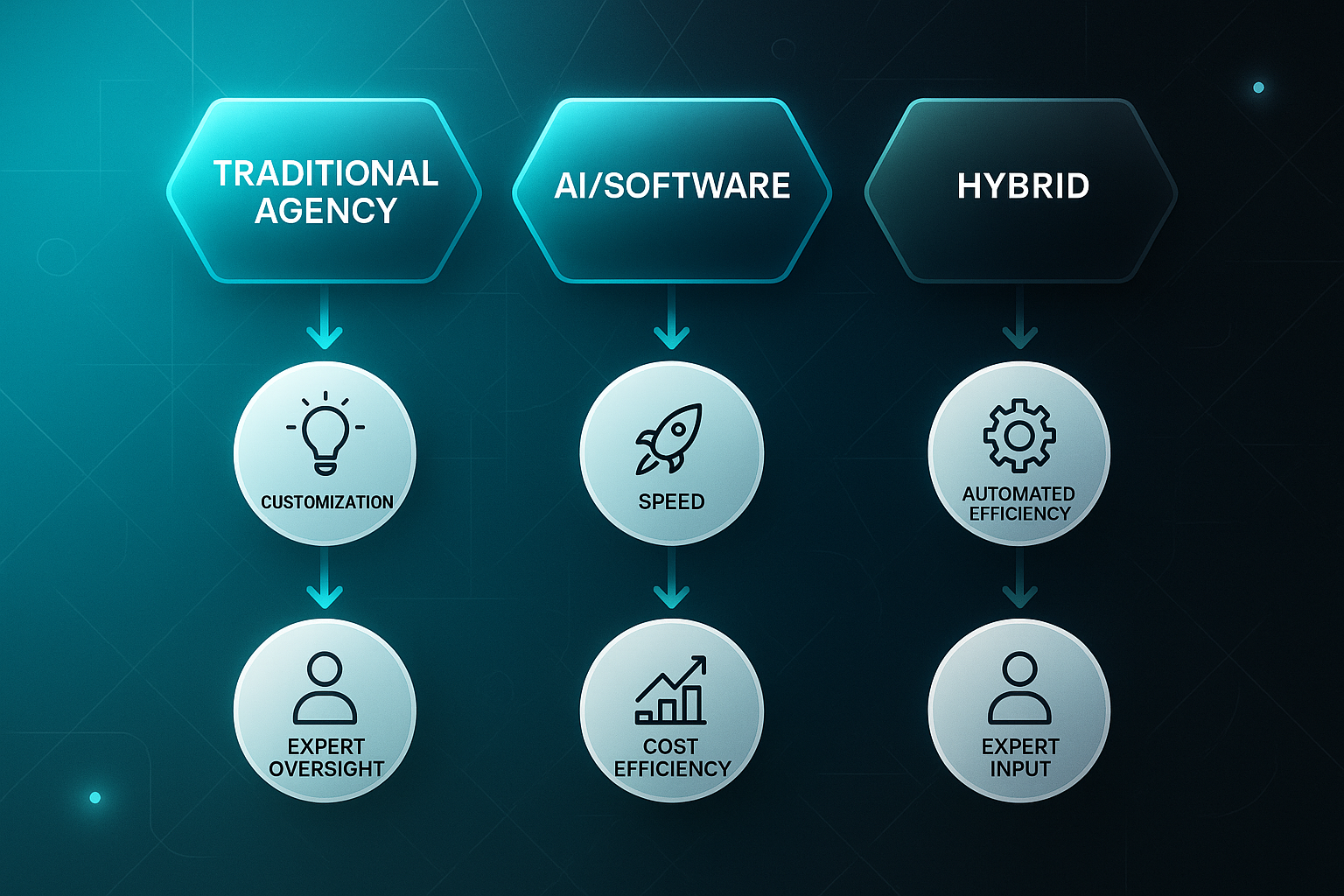
1. SEOSwarm by Precision AI Marketing
Overview and key functionalities
SEOSwarm isn’t just another SEO tool—it’s the digital partner many lean teams wish for. Getting up and running is genuinely quick: add a couple of lines of code and your SEO journey begins almost at once.
Now, what really sets SEOSwarm apart? That would be its clever use of swarm intelligence. It might sound high-tech, but the principle is straightforward. The platform’s AI watches which strategies are working for thousands of similar businesses, then borrows and adapts those tactics for your site. You don’t have to track trends; the AI does the heavy lifting.
AI-powered SEO platforms process massive datasets, such as analyzing over 20 billion keywords in real-time and tracking 310 million domains, to uncover new ranking opportunities and inform global strategies.
Imagine a particular blog style suddenly making waves for firms in your industry. Instantly, SEOSwarm notices and crafts similar optimised content for you. It’s like having a market-savvy strategist working behind the scenes, always switched on, always learning.
SEOSwarm manages your content from start to finish. It finds trending keywords, drafts original posts, and puts the polish on every detail. All the technical SEO best practices come as standard—think structured headings, neat internal links, and schema markup, so your pages stand out with rich info like ratings or opening times.
You won’t need to fret about mobile-friendliness or security either—those are baked in from the get-go. Considering a move into new markets? With multi-language support included, you’re a step ahead.
Collaboration feels effortless on the central dashboard. Any team member can review, edit, and approve content easily. Thanks to unlimited user access, small teams stay coordinated without hassle.
There’s a real bonus here: you aren’t left to figure it all out alone. A dedicated SEO expert is always a chat or call away, ready to fine-tune your strategy and ensure those automated improvements actually push towards your goals.
Although artificial intelligence is changing the way we approach advertising and content, human creativity is still invaluable.
Performance tracking is straightforward. SEOSwarm offers visual analytics for rankings, traffic, and conversions. Picture a local shop owner watching fresh posts go live and customer enquiries rise—hardly lifting a finger.

SEOSwarm doesn’t try to be everything. If you need bespoke consulting or deep manual campaign work, look elsewhere. But for speed, consistency, and actual expert guidance, it’s a genuine force-multiplier for small business SEO.

AI-Powered Content Strategy
See the AI platform that's replacing entire content teams (with better results).
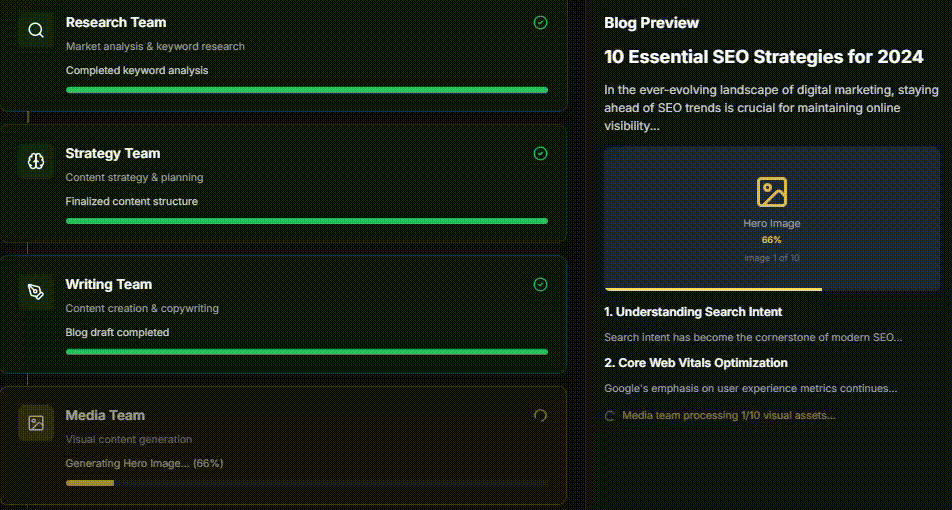
2. Focus Digital
Customised SEO for Smaller Brands
Focus Digital takes a refreshing, ground-up approach—building every SEO strategy to match your size, sector, and budget. They really understand local and niche businesses, whether you’re a dental clinic, builder, or specialist consultant.
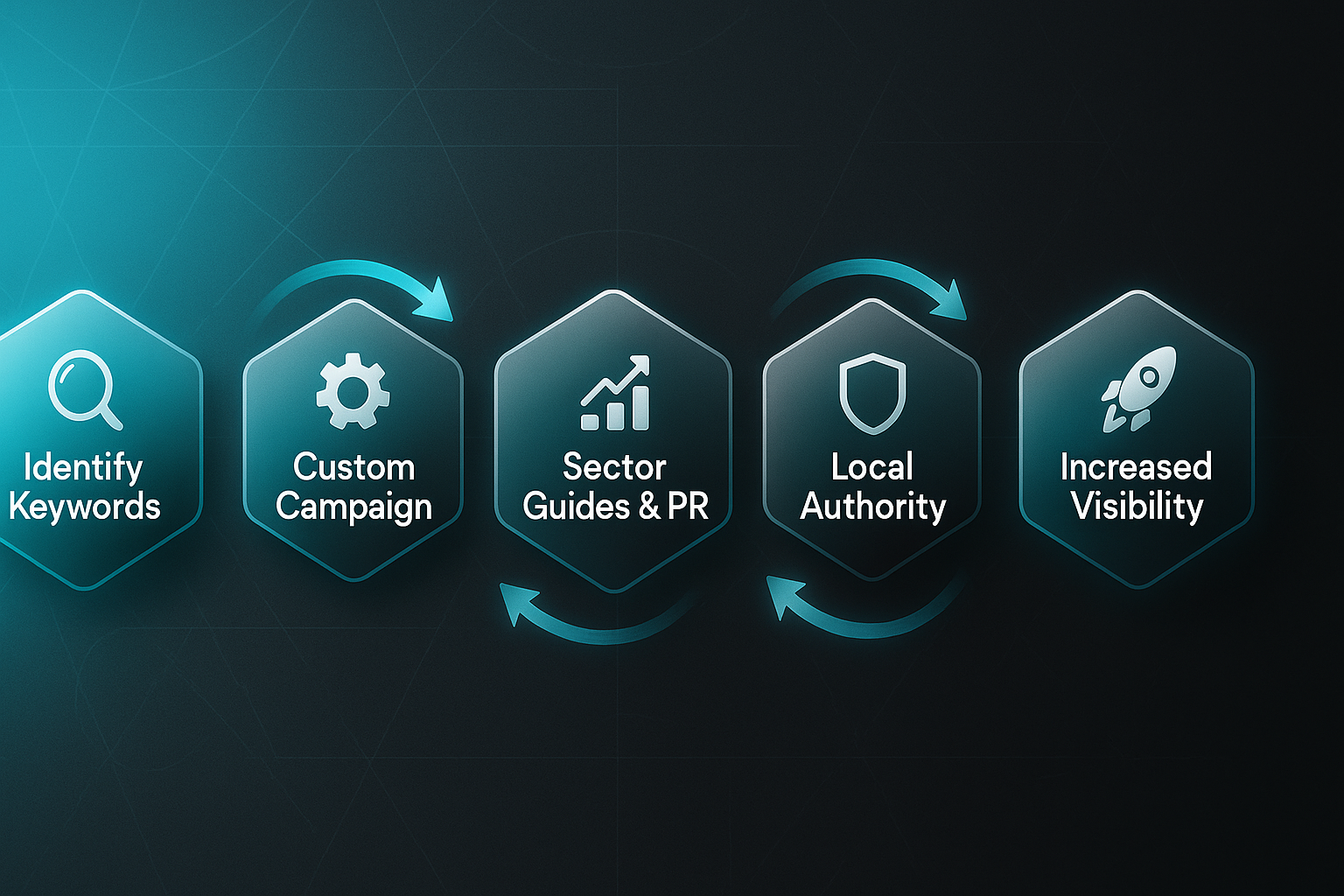
Their genius lies in prioritising high-intent, low-competition keywords. Rather than gunning for crowded, unattainable terms, they target what will move the needle—so more local customers find you first.
With Focus Digital, there’s zero copy-paste. Every campaign is custom-built, ensuring your business genuinely stands out amongst competitors.
Collaboration is central. Clients speak directly to experienced SEO specialists—never filtered through layers of account managers. You’re at the table for all the major planning, keeping business goals and realistic timelines in the foreground.
This directness leads to practical outcomes. Sector-specific guides or industry-focused PR campaigns are common. These tactics build your local authority in manageable, step-by-step ways, so even small teams aren’t overwhelmed.
Service Overview and Pricing Approach
Their core services include keyword research, on-page and technical SEO upgrades, content planning, local optimisation, and link building. If your growth plan asks for it, you can also tap into website redesigns, PPC campaigns, and automation tools.
When it comes to pricing, it’s genuinely accessible. There are no massive upfront fees—just a fair monthly retainer, usually within £2,000–£5,000, tailored to your needs and totally transparent about costs.
Pros, Cons, and Best Fit Scenarios
So, where does Focus Digital shine most? It’s perfect for local clinics, niche professional services, or specialist brands needing proven local SEO and better lead quality.
But capacity is limited; sometimes there’s a waiting list. They aren’t set up for rapid, multi-channel expansion.
Still, UK clients routinely report visibility gains and quality leads in as little as three to six months—thanks to careful keyword choices and conversion-focused content.
3. WebFX
Feature-rich, AI-enhanced SEO services
WebFX completely reimagines small business SEO. Its secret sauce? The proprietary AI platforms, MarketingCloudFX and RevenueCloudFX, which run every campaign.
You get thorough technical audits, in-depth keyword research, regular content, on-page improvements, local SEO, and tailored link-building. The intuitive dashboards showcase progress instantly.
The difference is clear: MarketingCloudFX suggests winning keywords and keeps watch for competitors’ moves. It’s like having a strategist in your corner, always analysing the landscape.
RevenueCloudFX pulls together web, ad, and lead data. That means you instantly see which parts of your site are actually driving leads or sales.
Automation runs deep here. Daily insights and AI-driven content ideas keep things fresh, while performance tracking is genuinely effortless.
Pricing, retention, and transparency
Nothing is hidden with WebFX. Packages start around £2,400–£2,500 per month and include access to their full AI suite.
Every project starts with a detailed audit and transparent proposal. You see every deliverable and cost upfront, so you’re never left guessing.
There’s direct contact with your SEO pro, monthly reporting, and dashboards putting site visits, leads, and real revenue centre stage. Results are fully visible, not buried in technicalities.
Clients highlight the measurable growth. WebFX clients have seen over $3 billion in new revenue—thanks to the right blend of tech and people.
Strengths and trade-offs for small businesses
WebFX is tailor-made for teams wanting actionable analytics and hands-on support. Automation, deep insights, and expert guidance offer real clarity.
Still, if you’re very lean or after a basic DIY option, SEOSwarm or Focus Digital might work better. And those only needing the fundamentals could find WebFX’s power a little overwhelming.
Provider Comparison Snapshot
| Strength | WebFX | Focus Digital | SEOSwarm |
|---|---|---|---|
| AI-powered platforms | Yes (MarketingCloudFX, RevenueCloudFX) | No | Yes |
| Pricing transparency | High; starts ~£2,500/mo | Moderate | High; affordable |
| Hands-on support | Dedicated team | Specialist access | Hybrid: automated + expert |
| Best for | Data-driven, growth-focused | Niche/local budget | Fast, low-touch SEO |
4. SmartSites
Range of services and flexible pricing
SmartSites brings a broad digital marketing toolkit to the table. We're talking technical SEO, on-page and off-page optimisation, e-commerce SEO, website builds, and paid ads on Google and Facebook.
What truly stands out is how all these services integrate. Whether you want pure SEO or a blend of design and advertising, their modular approach lets you scale, focus, or mix-and-match as your business evolves.
Packages are flexible—opt for hourly, project-based, or monthly pricing depending on your needs. Entry-level retainers land around $2,000–$5,000 (roughly £1,600–£4,100), and it's all tailored support rather than cookie-cutter bundles.
Because SmartSites is more hands-on than a pure DIY platform, onboarding can take a bit longer. But for most small businesses, that upfront investment pays off.
Reputation and US market leadership
SmartSites has made a real name for itself in the US, routinely ranking as a top digital agency. They're decorated with national awards and partner certifications, and client reviews average a stellar 4.9/5 on platforms like Clutch.
Their case studies tell a compelling story. Clients often see organic traffic double and sales rise sharply within six months of joining forces.
E-commerce and data-driven businesses especially appreciate SmartSites’ integrated analytics and joined-up campaign management. Clients also highlight clear communication and strong collaboration at every step.
When SmartSites is the right (or wrong) choice
SmartSites is ideal for businesses seeking a cohesive digital marketing plan—think e-commerce shops, ambitious growth firms, or those needing SEO and paid ads to work in harmony.
For startups launching both a new website and visibility push, this unified approach really shines. But here’s the thing—if you're a microbusiness or all you want is basic, local SEO, SmartSites might be more firepower than you need.
Before committing, always clarify proposal details, reports, and contract terms to make sure it truly fits your goals.
Blog-in-one-minute
Add a fully SEO-optimised blog to your website with just 2 lines of code.
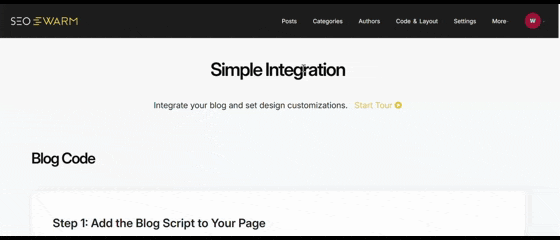
5. Searchbloom
Local and transparent, results-driven SEO
Searchbloom specialises in practical, measurable SEO specifically for growth-driven local businesses. Your journey starts with a hands-on technical audit—boosting site speed, mobile performance, and fixing those frustrating SEO gaps that damage your rankings.
Once the foundations are set, their team dives straight into geo-targeted keyword research and optimising your Google Business Profile, so you start standing out in crucial local searches. And building high-quality, relevant backlinks is central to their approach—this builds real trust with search engines and can transform your visibility.
The results? One e-commerce client saw a 741% revenue jump and a 300% increase in conversions after a focused campaign. Another business, in local auto services, reported targeted metric gains between 30% and 700%. Throughout, Searchbloom’s clients get straightforward analytics, practical updates, and honest, transparent communication straight from their SEO lead.
Packages, pricing, and scope for small companies
Searchbloom skips the cookie-cutter plans. Every SEO engagement kicks off with a discovery phase that locks onto your market, goals, and competitors. Pricing is always clear: budgets begin at around $2,000 per campaign, with full-site projects typically ranging between $10,000 and $49,999.
This budget brings you detailed research, technical fixes, authoritative content, strategic link building, and ongoing, expert optimisation. Clients routinely highlight clear returns—like a 500% ROI and impressive cost-per-customer reductions. That makes them an attractive option for owners who want real clarity on outlay and results.
Pros, cons, and client profile match
Transparency genuinely defines Searchbloom’s service—regular, data-backed reporting and open conversations are standard. They excel in local strategy, technical upgrades, and converting traffic into meaningful growth.
However, higher entry costs and the absence of DIY packages mean they’re best suited to established and ambitious SMEs. If you’re working with lighter budgets, platforms like SEOSwarm or Focus Digital might be more in line with your needs.
6. Ignite Visibility
AI and analytics-powered SEO campaigns
Ignite Visibility brings together artificial intelligence, analytics, and hands-on management in a method that’s distinctly agile for small and multi-location brands. The magic? Data-driven optimisation, with AI keeping an eye on your site, competitors, and trends, so the team reacts instantly.
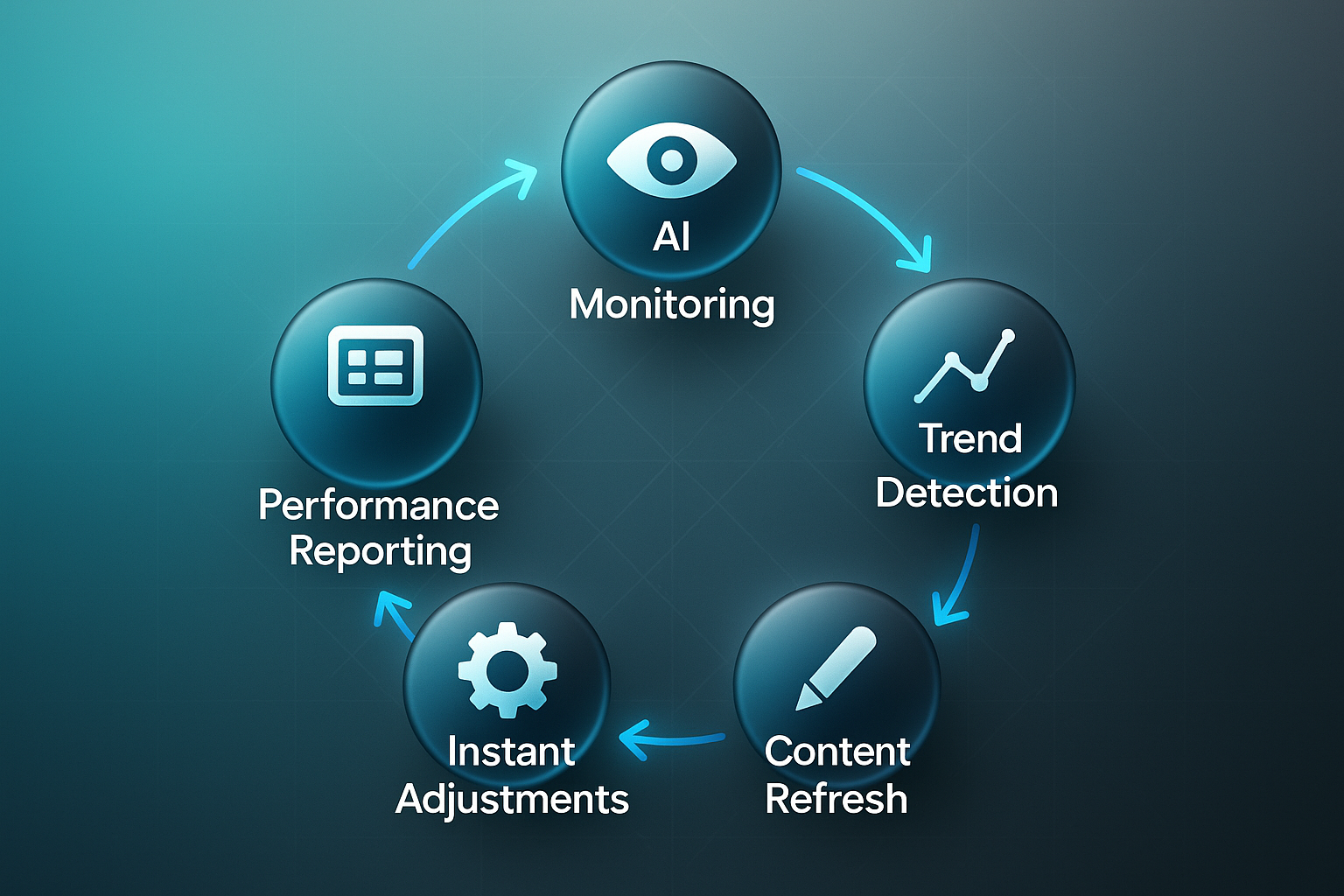
Technical issues are spotted before they snowball, and keyword strategies adjust with local shifts. Their playbook—dubbed “Generative Engine Optimisation”—leans on generative AI to refresh site content and campaigns. This helps brands surface more often in Google AI Overviews and voice-driven results.
You’ll have no trouble keeping track, either. Automated reports break down rankings, website visits, and how your brand shows up in local searches. For growing businesses juggling multiple locations, each profile is kept sharp and current as Google’s priorities evolve.
Pricing model and onboarding process
Ignite Visibility offers flexible pricing. There’s no rigid menu—small business campaigns typically begin at $1,000 per month, with costs scaling based on your locations or reach.
Onboarding is smooth but thorough. You get an account manager to set up analytics, assign roles, and dig deep into research. Expect your Google Business Profile to be optimised and wider marketing easily connected. Regular, clear dashboard reports make it easy to gauge results.
Who benefits from Ignite’s model—and who may not
Multi-location brands and sectors like healthcare, fitness, or finance benefit most from Ignite’s proactive style. It’s ideal if your team values collaboration, wants tailored support, and is investing in long-term visibility.
After a stripped-back, DIY SEO tool or hands-off approach? Ignite will likely feel too high-touch and premium. But for those wanting an adaptive partner with the right AI toolkit, Ignite Visibility’s approach helps your business keep pace as the world of search changes fast.
7. Manta
Proactive local SEO and business directory approach
Let’s explore how Manta amplifies a small business’s local visibility. Their process kicks off with a campaign audit, identifying SEO gaps and pinpointing the directories where you’ll get the greatest mileage.
Then comes ongoing directory management. Your business is listed—and actively maintained—across over 70 major platforms. It’s not just a one-off; your details stay current, so you’re seen where it matters.
Directory management in detail
Having accurate listings boosts credibility and your odds in those pivotal “near me” searches. Directory selection isn’t random—every platform is chosen to heighten visibility for your precise market.
Manta backs this up with transparent monthly reports tracking rankings, listing performance, web traffic, and incoming leads. Dedicated account managers guide you, making the technical side accessible to anyone.
Pricing structure, onboarding, and speed to results
Costs are easy to grasp: directory-only plans start at $37/mo, and full SEO packages run $600–$1,200 monthly. There’s never pressure for long contracts—each service spells out what’s included so you can plan confidently.
Guided onboarding and step-by-step results
Onboarding is simple. It begins with a local SEO audit, followed by a clear action plan and routine check-ins. Expect impact in 60–90 days, measured by rising Google Profile views, traffic, and calls.
Strengths and fit scenarios for small/local businesses
- Ideal use cases
Local retailers, trades, and clinics wanting fast local results with minimal effort. - Key strengths
Easy pricing, consistent directory upkeep, and ongoing support perfectly suited to resource-limited teams. - Customer service considerations
Support quality is often praised, though it can depend on your assigned manager.
Potential limitations and asset control risks
Manta is designed for local—not national—SEO. Before starting, check asset control: will you keep editing rights to your listings after service ends? Policies vary.
8. Hibu
Mobile-first and Google-centric services
Hibu puts mobile users right at the heart of everything. Their websites and landing pages are designed to load quickly and look great on smartphones, which is essential now that local searches happen mostly on the go. For small businesses, this mobile-first approach means people can find, call, or visit you in just a few taps.
What sets Hibu apart is their hands-on Google Business Profile management. They take care of everything—setup, updates, and routine optimisation—so your details stay visible and fresh in Google Search and Maps. That accuracy and regular tweaking boost your chances of attracting real, ready-to-buy customers nearby.
- Focus on mobile optimisation
Websites and landing pages work beautifully on smartphones, catching today’s mobile customers. - Comprehensive Google Business Profile management
Constant updates and optimisation keep your listing front and centre locally. - Impact on local discovery and conversions
More visibility in local search means more calls, bookings, and visits.
Bundled packages and upfront pricing
Hibu keeps things simple with all-in-one bundles—SEO, website hosting, directories, reputation, and optional paid ads in a single package. It’s a relief if you’re tired of chasing different suppliers or wrangling disjointed tools. Packages start from about $995/month (around £800), and you only pay for the extras you actually need—transparent, predictable, and easy to plan for.
- Bundled service approach
SEO, listings, and social advertising brought together for hassle-free management. - Entry-level pricing and scalability
Clear starting price, with flexible add-ons to suit business needs. - Ease of budgeting and planning
Single-provider simplicity makes managing costs and updates far easier.
Where Hibu fits—and its limits
Who benefits most
Hibu is ideal for owner-operated local shops, clinics, or trades needing reliable SEO and no digital fuss. An assigned account manager keeps reporting and support straightforward.
- Best-case scenarios
Local firms relying on search visibility but wanting centralised, managed support. - Appeal for busy owners
Minimal admin, clear communications, and one-stop SEO.
Limitations to weigh
Big, custom campaigns or advanced analytics are better handled by bespoke agencies. And Hibu’s price may be steep for some; support experiences vary.
- Strengths
One-stop solution, direct support, and accountability. - Potential drawbacks
Pricier and less customisable than some larger agencies.
9. RevLocal
Personalised, data-driven SEO for local/service markets
RevLocal brings a refreshing, hands-on touch to local SEO. Their strategies are deeply data-driven and shaped by your unique location, sector, and business ambitions. From the start, you work with a dedicated marketing strategist—the point person guiding your campaign, handling questions, and pivoting tactics whenever your company or local market shifts.
What’s included? You get a pretty robust mix: managed business listings, expert Google Business Profile optimisation, custom built microsites, and close surveillance of online reputation. But here’s what’s clever—this isn’t just another cookie-cutter service; each campaign genuinely shifts with your needs. Maybe you need hard-hitting citation building at first, then pivot to ramping up reviews as your market changes.
Ongoing support, onboarding process, cost structure
Onboarding with RevLocal is intentionally smooth and light on jargon. It all starts with a free assessment, followed by real collaboration on your plan. Your strategist spearheads the setup and keeps everything transparent with regular updates and monthly check-ins. For clarity, you get analytics dashboards that show how things are progressing—no mystique, just clear results.
Cost-wise, expect local SEO pricing to fall between $300 and $700 per month, though there are add-ons for PPC or social media work. Contracts can be month-to-month or short-term, but always check the details—custom quoting means the true price and terms aren’t instantly obvious.
Who should consider RevLocal? Pros, cons, and edge cases
RevLocal is perfectly suited for owner-managed shops, healthcare practices, trades, or franchises wanting hands-on, proactive SEO. The biggest selling points? The dedicated strategist and genuinely comprehensive support.
The main drawbacks—premium costs and a need for ongoing involvement—could put off startups or those requiring low-touch management. In those cases, platforms like SEOSwarm or Manta might suit you better. Just make sure you know exactly what’s included and clarify contract flexibility before signing.
10. Titan Growth
Automation-driven SEO: How Titan Growth works
If you want an SEO partner that takes automation to another level, Titan Growth fits the bill. The highlight? TitanBOT technology. This clever system simulates how search engines crawl your website, predicting the impact of any optimisation or change.
That means instead of guessing what works, you get enterprise-grade visibility—without the guesswork. Even small brands can tap into SEO insights usually reserved for much bigger players.
Within the platform, you’ll find automation for competitor tracking, keyword research, technical audits, and seamless CMS integration. No more juggling multiple tools—everything’s centralised.
Not sure if you’ll need loads of SEO expertise? Titan Growth handles technical onboarding for you. You get the benefits, and their team deals with the complexity behind the scenes.
This approach particularly suits SaaS, e-commerce, and multi-location businesses chasing fast growth. These types of brands have seen genuine improvements in traffic, conversions, and rankings via Titan’s predictive optimisation.
Pricing, onboarding, and scalability
Let’s talk price. Custom quotes apply, with a minimum three to six-month commitment. They start with an in-depth audit, align strategy with your goals, and then automate much of the setup.
Once you’re up and running, the Titan team manages both technical and content SEO. You stay in the loop by steering objectives and reviewing progress. Transparent reporting is standard—analytics and updates keep everything visible.
Scalability is a big plus. Want to add new locations or markets? The platform’s designed to expand quickly and keep things cohesive.
Strengths, pros/cons versus agency model
- Strengths
Patented tech, automation, expert support, and strong, reliable organic growth results. - Best fit
Fast-scaling SaaS, e-commerce, and multi-location brands wanting hands-off, automation-driven SEO. - Potential drawbacks
Not for DIY or highly bespoke campaigns; minimum contracts limit trial flexibility. - Client involvement
Focus on strategy and goals while Titan Growth handles everyday execution.
11. Rank Science
AI-powered, hands-off SEO for lean teams
Pressed for time but still want impactful SEO? Rank Science does the job for you. Connect your website, and the AI immediately runs technical audits and resolves those sneaky on-page or structural issues that hurt rankings.
What’s genuinely clever is how it adapts your SEO as Google or competitors change tactics—your visibility grows, yet you don’t have to keep eyes on endless analytics.
- Fully automated SEO approach
AI manages audits, technical fixes, and page optimisations; no heavy manual oversight. - Continuous data-driven adjustments
The platform adapts to shifting trends and competitor moves to sustain organic growth. - Support for local growth
Automated Google Profile and local keyword updates keep you visible in local searches.
Simple setup and “set and forget” operation
Getting started couldn’t be easier. Link your site, scan your instant audit, and review jargon-free recommendations.
Want control? Approve updates yourself. Prefer to “set and forget”? Rank Science automates the process each step of the way.
Their dashboard makes tracking dead simple. Rankings and overall site health are right in front of you—no technical know-how needed.
- Fast onboarding
Link your site, get an immediate audit and clear, non-technical recommendations. - Total automation option
Opt to approve actions or let the platform optimise continuously for you. - Clear progress tracking
Simple dashboards provide up-to-date reporting—no specialist skills needed.
Is Rank Science the right fit?
So, could full automation be exactly what you need? For lean local teams or service businesses, it really saves time—no wasted hours puzzling over SEO, just steady, reliable growth.
- Strengths for small teams
Saves staff time, keeps costs clear, and supports long-term traffic growth. - Potential limitations
Strict automation means less custom strategy—less suitable for competitive or complex sectors. - Best-fit scenarios
Well-suited to local retailers and service providers wanting reliable, low-effort SEO.
Choosing the Best SEO Companies for Small Business
Most small businesses don’t need a magic bullet—they need an SEO partner who’s honest about what works and what doesn’t. The best SEO companies for small business success are the ones that combine clear communication, transparent pricing, and a focus on sustainable, compounding growth—not empty promises or shortcuts.
Here’s my advice: Start by mapping your real needs and constraints. Do you want hands-on support, or do you prefer automation? Are you focused on local visibility, or ready to scale nationally? Use the criteria and company profiles above to shortlist providers who match your goals, budget, and appetite for involvement. Ask about asset ownership, contract flexibility, and reporting before you sign anything.
SEO isn’t about chasing quick wins—it’s about building a digital asset that keeps working for your business long after the campaign ends. The right partner will help you grow steadily, avoid costly mistakes, and turn your website into a magnet for the customers you actually want. Choose wisely, and let your results speak for themselves.
— Wil


